Description
PEG-MGF
Pegylated Mechano Growth Factor
Description
PEG-MGF (Pegylated Mechano Growth Factor) has been used by
bodybuilders and athletes for a few years already. After resistance
exercise, IGF-1 is released within the muscle. Specifically, at this time,
immediately following the mechanical use of a muscle, the IGF-I gene is
spliced towards MGF which initiates hypertrophy and repair of local muscle
damage. It does so both by activating muscle stem cells and satellite cells,
but also via various other anabolic processes. It differs from “regular” IGF-1
mainly due to it’s C-Terminal sequence.
PEG-MGF is a sterile, non-pyrogenic, white lyophilized powder intended for
subcutaneous or intramuscular injection, after reconstitution with sterile
Water for Injection.
Mechanism of Action
When mechanical overload is introduced to a muscle (as by weight
training), the IGF-1 gene released and is differentially spliced during the
bodies response. Initially, it is spliced to produce predominantly IGF-1Ec
(called the MGF splice variant of IGF-1). This early splicing stimulates
satellite cells into activation. Which in turn allows the activation of extra
undamaged nuclei to grow new muscle fiber and tissue. The appearance of
PEG-MGF also initiates the upregulation of new protein synthesis. After this
initial splicing of IGF-1 into PEG-MGF, production then switches towards
producing a systemic release of IGF-1 from the liver, which also
upregulates protein synthesis as well. The expression of IGF-1 splice
variants, over the course of the healing and regrowth phase of muscle
repair is thought to be the primary anabolic mechanism by which the body
produces new muscle. PEG-MGF is available as an injectable peptide, and
it has been anecdotally shown that injecting it will cause a response in the
area resulting in localized muscle growth.
- Improved skeletal muscle regeneration
- Improved bone density
- More efficient recovery from injury
Adverse reactions
The negative side effect that has been primarily linked to Mechano Growth
Factor is that of hypoglycemia. This condition, commonly referred to as
“low blood sugar,” is thought to be a potential condition relating to the
increased efficiency of cellular functionality that the peptide stimulates.
Scientific research based on animal test subjects has also concluded that
this negative side effect could be countered with an increase intake of
glucose for an animal test subject.
Other potential negative side effects that have been linked to the peptide
through scientific study of animal test subjects include a drop in blood
pressure, swelling of extremities, and increased cardiovascular
irregularities up to and including cardiac arrest. That said, scientific study
has derived that the potential negative side effects are less likely to occur
than the theoretical positive benefits.
Instructions for reconstitution
Flip off the top of the peptide vial with your thumb. Use the alcohol swab to wipe the
rubber stopper of the peptide vial. Push the needle of the syringe into the middle of the
rubber stopper so it goes through the rubber and into the vial. Now, while angling the
needle so that the water for injection goes down the side of the glass, rather than
directly into the powder, inject the water for injection into the vial. Repeat this step until
you have the correct amount of water in the vial. The powder will dissolve quickly,
however it can help to gently roll the vial in between your fingers (do not shake the vial
vigorously). Remove the syringe and dispose of it. You should never re-use a syringe.
Dosage
Recommended dosage of PEG- MGF:
- 200-400 mcg multiple times per week.
Storage
- After reconstitution, may be stored for a maximum of 14 days in a refrigirator at 2°C — 8°C.
- Store vials in an upright position.
- Store in a refrigerator (2°C — 8°C). Keep in the outer carton in order to protect from light.
- For one month can be stored at room temperature.

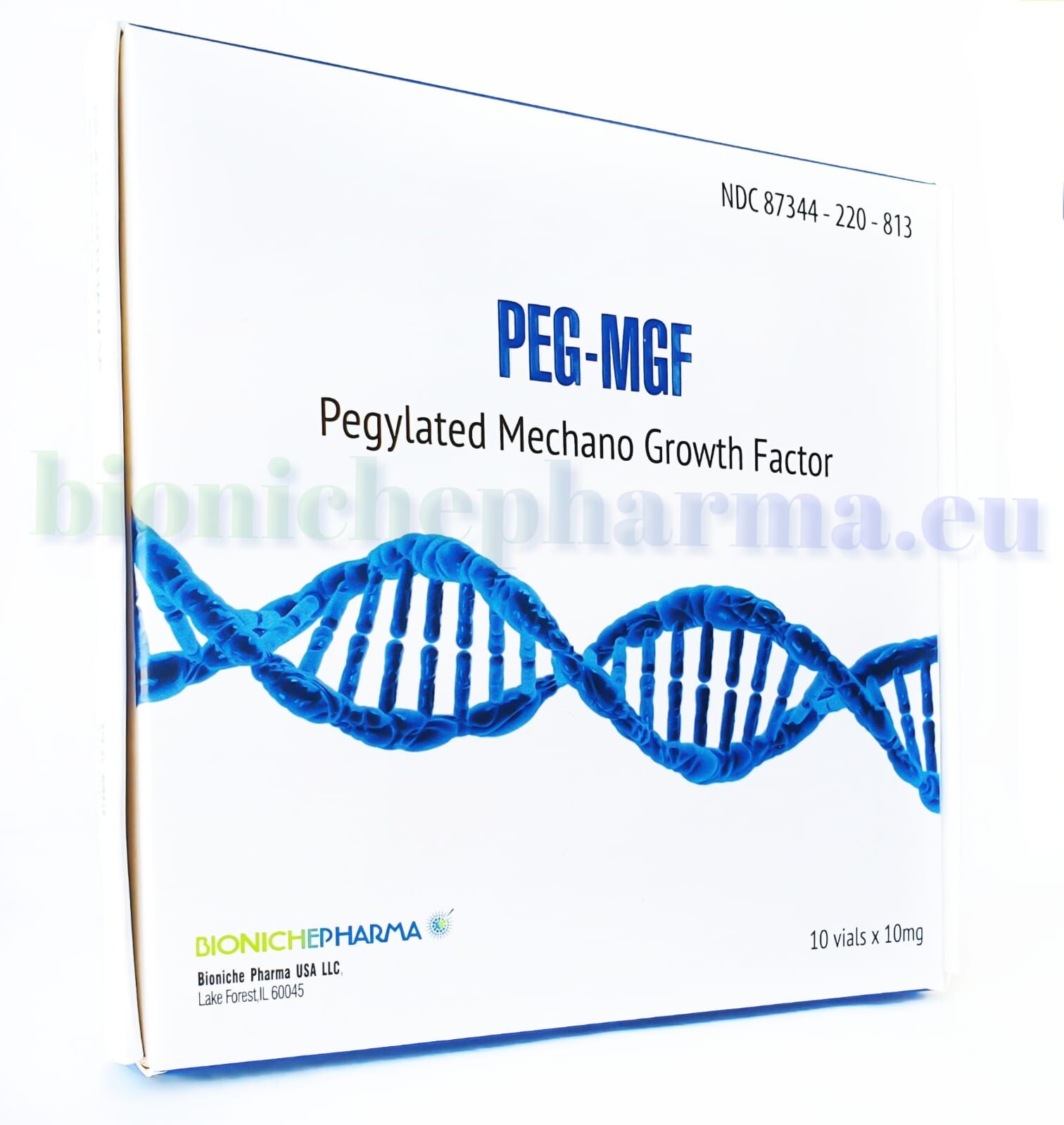
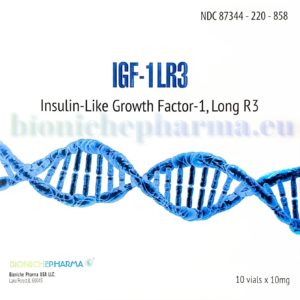
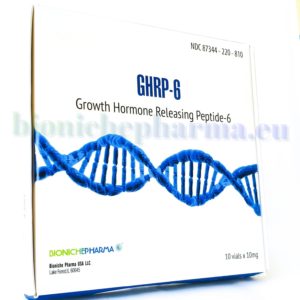
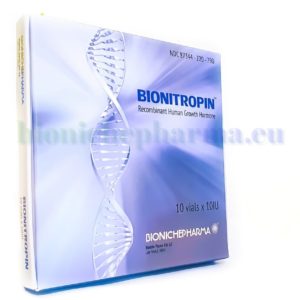
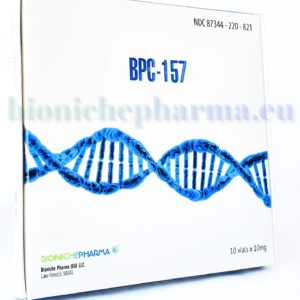
Reviews
There are no reviews yet.